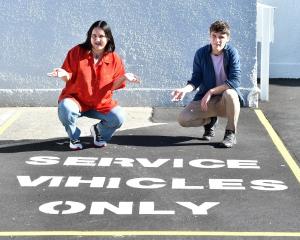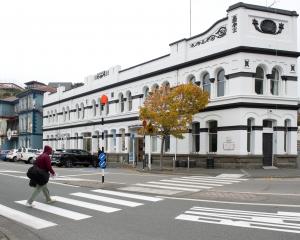The 24-year-old is one of six young people aged between 18 and 25 who have been placed in paid work and are undergoing training and receiving mentoring support under the scheme.
Mr Rogers, who is halfway through the 26-week programme run by the trust in conjunction with Otago Polytechnic and 4 Trades, said he and the others were "loving it".
"I had heard it was quite hard to find employment in Dunedin and I saw it in the newspaper and thought it would be an ideal opportunity," he said.
Along with working at Road Materials Workgear, he spends every fifth week at the polytechnic working towards a foundation studies diploma.
What he had achieved so far was "beyond expectations" and he appreciated how the programme allowed people to "feel better about themselves and actually put a foot in the door of places".
"I think a lot of people have been putting in CVs to a lot of places and a lot of people don't hear back ... I think if people get the 'no' and don't hear back, they think it's easier staying on the dole."
His employer, Roger Owen, agreed, saying it was a good opportunity for young people to "advance themselves", and "great" from an employer's perspective.
The programme took on 16 young people for a two-week induction programme earlier this year. Six of them went into the Altitude programme, three found full-time work, three went into full-time study, and two went into Malcam youth development.
Malcam Trust project manager Andrew Kilsby was "thrilled" with how it had gone and was preparing for the next stage.
"We are so heartened that we are about to launch into a second phase and we will now be actively seeking further work places and young people," he said.
Along with offering paid work experience, the programme would expand into offering a 20-week internship, of which 15 weeks would be working and five spent at the polytechnic.
"What we are trying to do is create options, flexibility, and less exclusion," he said.
Not only would growing the programme create more opportunities for young people, but it would help attract new businesses as well.
Organisations in the trade sector, administration, hospitality and retail were "all areas we see a gap in the market", Mr Kilsby said.
Businesses needed to think about "succession planning", something the programme could assist with.
"It's about finding pragmatic solutions to engage our youth. We should not have 40% youth disengagement in our community."












